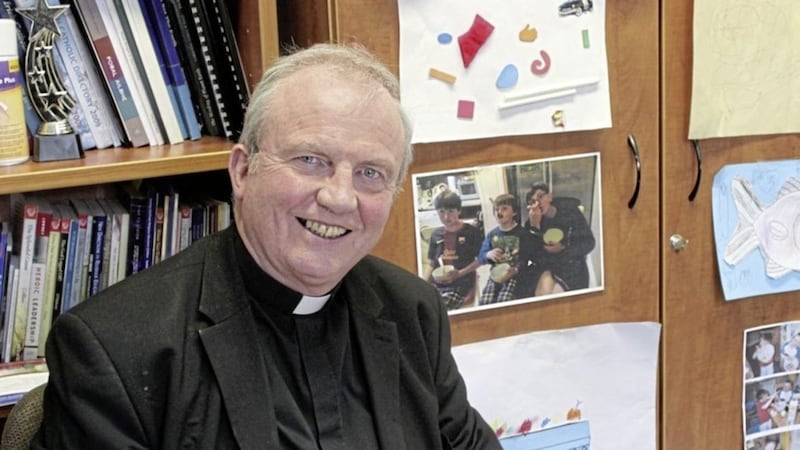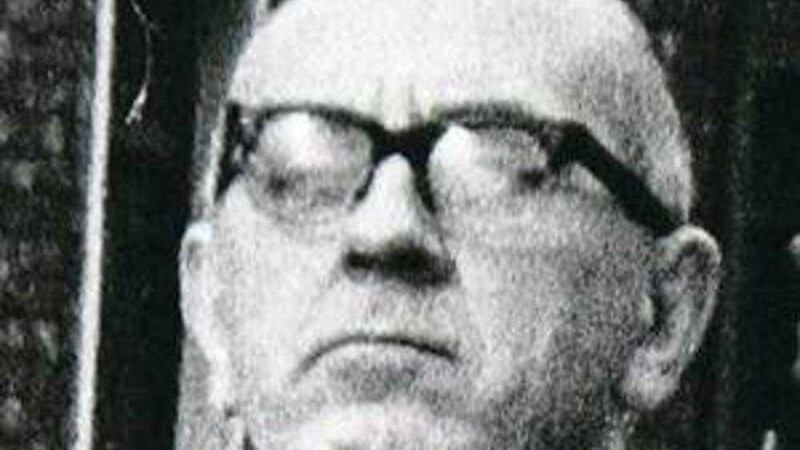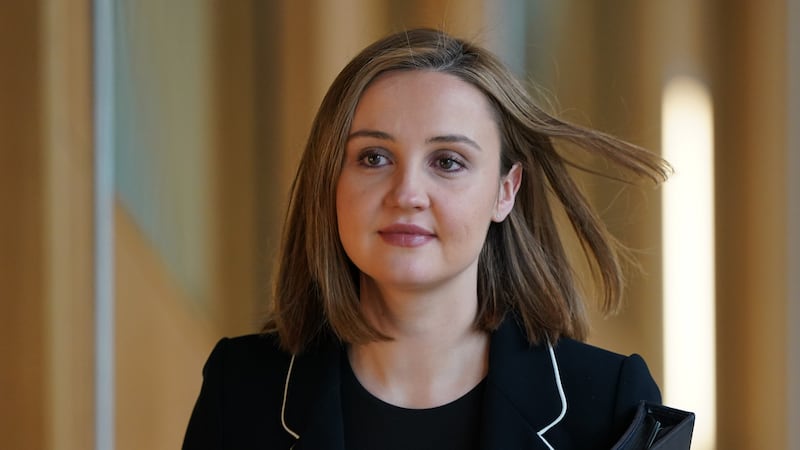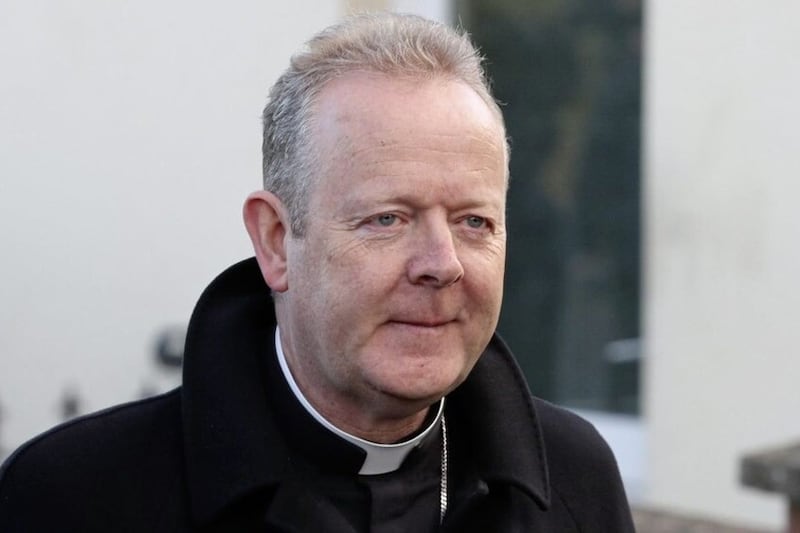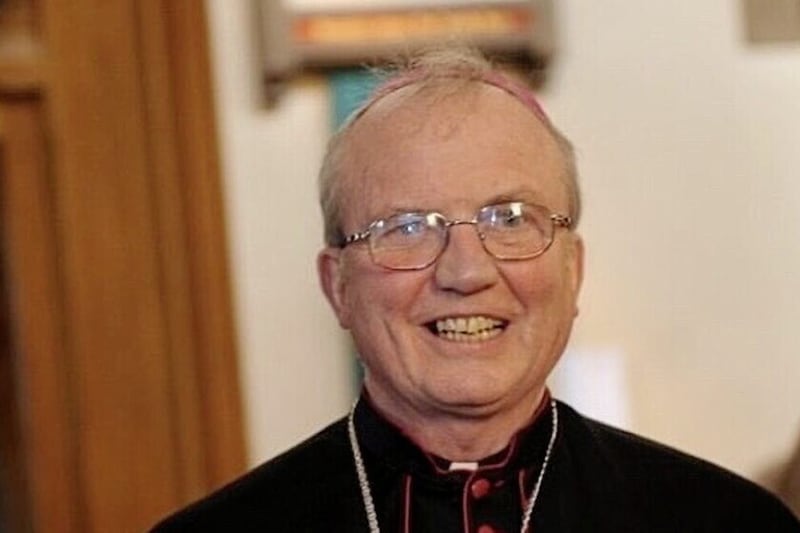CHURCHES should be allowed to reopen for private prayer as places of solace during the coronavirus pandemic, Bishop of Derry Donal McKeown has said, arguing such provision would be "at least as important as access to an off-licence".
The bishop also said it was important that clergy continued to offer bereaved families the opportunity of a church funeral.
Dr McKeown was speaking as Ireland's Churches continue to navigate how best to serve their people amid Covid-19 and official restrictions on public gatherings.
Weekend public worship has been suspended across Ireland and although governments on both sides of the border initially allowed church buildings to remain open for private prayer, that too has now been halted.
Dr McKeown said that churches with open doors were especially important "for people who are distressed", particularly where "they might go to the off-licence instead if they can't get to the church".
Coronavirus: Digital technology 'God-given'
Standalone off-licences in Northern Ireland were forced to close last week when the government tightened restrictions on what shops could remain open during the coronavirus outbreak.
However, they were able to reopen their doors after lobbying led to them being added to the Stormont Executive's list of 'essential businesses'.
"Access to well spaced-out private devotion time in a church, particularly in the Catholic tradition, is at least as important as access to an off-licence," said Dr McKeown.
"We are trying to communicate that to the authorities. I would fight for it, because people miss being able to drop in for private prayer."
Dr McKeown explained how, before the ban, St Eugene's Cathedral in Derry had been arranged so that seats were blocked off to meet social distancing requirements.
"People can live with that," he said. "For a remarkable number of people - particularly men in Derry - coming into a church seems to still be very important."
Access to well spaced-out private devotion time in a church, particularly in the Catholic tradition, is at least as important as access to an off-licence
Dr McKeown also pointed out that among the 'reasonable excuses' for leaving home was providing care and assistance to a vulnerable person.
"Going to a church for private prayer can be a very important service for a vulnerable person," he said.
Measures to combat the spread of Covid-19 have dramatically impacted wakes and funerals in Ireland, with graveside committals becoming increasingly prevalent.
Government rules do explicitly allow for funerals in church buildings to continue, albeit under very strict conditions, including that only immediate family should attend and that appropriate social distancing is practised.
However, the north's largest Catholic diocese, Down and Connor, last week announced it would no longer host funerals in its church buildings. The deceased's remains would instead be brought directly to the cemetery for burial.
The Catholic diocese of Clogher followed at the weekend and the Methodist Church has also decided to suspend church funerals.
Presbyterian and Church of Ireland clergy continue to offer church funerals as well as graveside committals.
Bishop McKeown said that Ireland's "very healthy tradition of the wake" meant that bereaved families were understandably upset by the restrictions made necessary by coronavirus.
"Talking to the priests here, we're always focusing on how we help these people in their bereavement," he said, adding that the Irish bishops had developed prayers "for families to pray themselves around the remains" as well as "ways of praying with people who are ill but can't be visited".
"We are trying to develop ways of engaging with the reality of bereavement and asking how can we best help people in their really painful hour of need," he said.
Discretion and sensitivity are of utmost importance to meet people in "their hour of grief" in the midst of the "terrible circumstances" of the coronavirus crisis, said the bishop.
"I'm saying to priests that some families won't worry about not having a church service, whereas some will say they desperately want a church service," said Dr McKeown.
"The government regulations, north and south, do make allowances for having church funerals.
"If the priest happens to be a man whose health is not in great shape, I might advise him to say that he can't do it, and get someone else to say prayers at the graveside - people will understand if the priest has just had a heart bypass or cancer treatment.
"But we have to have as our starting point: What is the best we can do for people in their hour of grief?
"It may to have a funeral service or Mass in the church where everyone is far enough apart and no-one is being compromised.
"Or even a short service at the door of the church, with the priest accompanying the family to the graveyard."
Church funerals, particularly with webcams now so widely used, also offer a way for "family abroad or who can't get home" to participate, said Dr McKeown.
"We have to look at what their needs are, and be sensitive to those needs."
